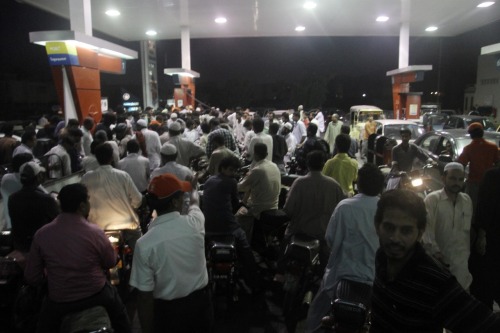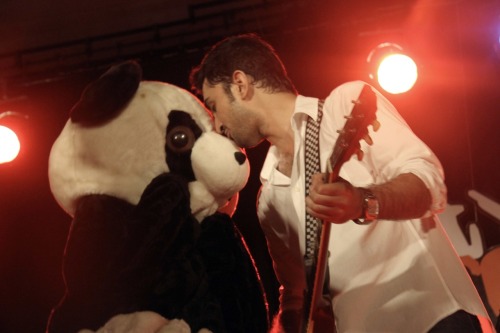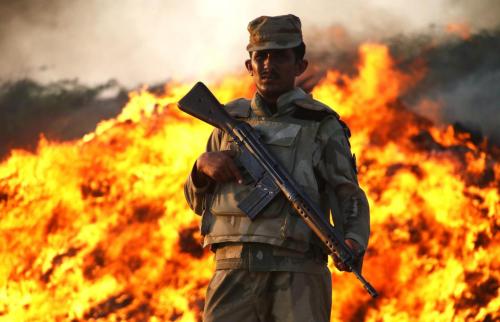#karachi
NOW ON SNAPCHAT! First 200 get VIP snaps for 2 weeks. Send me a snap typing F200. Stay tuned…
Post link
thatunleashed more slaughter in Sindh:
“If [MQM-Haqiqi leader] Afaq Ahmed is a criminal, then [MQM leader] Altaf Hussain is 100-times a bigger criminal,” bellowed Mirza. “Afaq is the second-biggest political prisoner in Pakistan after President Asif Ali Zardari…This province was here for centuries before you [Urdu-speaking migrants] came to this city hungry and naked [after Partition in 1947],” said Mirza. “You will divide Sindh over my dead body.“
*Signs of intelligent life (at least in this instant): "Mirza made the remarks at a dinner hosted by Awami National Party (ANP) leader Shahi Syed. Interestingly, when Mirza first came forward to speak to the media, Syed attempted to stop him – and, once unable, requested the media ‘to not ask sensitive questions’
from Express Tribune
SchimiHusseynShumaila Hussain “AltafHussain is 100times criminal than AfaqAhmed” is this statement justifies to burn #Karachi & kill it’s people? #MQM
Saad_HaroonSaad Haroon We are not Sindhi or Mohajir or Pathan, the amount of people we sacrifice in #Karachi everyday, we must be Aztec. Time to build a pyramid.
WajihaShamimWajiha Shamim Slept and woke up with gunshot lullaby…
Saba_ImtiazSaba Imtiaz Exams cancelled at KU, public transport union to not operate buses, channels estimating 7 to 9 people killed so far.
FurhanHussainFurhan Hussain So I hear #MQM’s burning their home again? Why don’t they set themselves on fire one of these days?
akchishtiakchishti#Karachi for not opening today would loose Rs.12-14 billion ($140-160 million USD) business. (my note…where did numbers come from?)
sabahat24Sabahat Zakariya I have 2 kind of students. 1:Nalaaeq & ready to maro maaro at every insult. 2. Who laugh at slurs, work hard & get into Ivy Leagues
One party, three dinners with friends (and one of those, sidewalk seating!), three reporting trips (safe stories, of course. sigh, always safe stories), one trip to the bazaar and the grocery and the pirated DVD supercenter later…
(btw, think the “new” body count is actually up to 10)
Or what passes for it here. In Saddar today, the heart of the city, markets were (nearly) as busy as ever, and there didn’t seem to be a lot of extra security on the streets. Still a bit of firing and tear gas, but deaths seem to have plateaued.
Last night, five whole hours passed without my checking Shaheryar’s twitter updates or even thinking about body counts. People danced and glittered and I bandied my camera and made generous use of the fact that, as an American woman, I’m allowed trips to the bar without aunty tongues a-wagging. (All the Pakistani ladies feel they must ask men to fetch their vodka 7-up.)
And it was glorious.
When I got home, there was a white jeep in front of my house, red and blue’s whirling. He was just standing there, at the head of the streets, watching me wait for the gate to open. Wasn’t he needed in other places?
All quiet on the northern front (according to twitter, which I checked at 1:04am, which was incidentally, about 30 seconds after I made it through the front door). So today…light reporting in Saddar (for the art deco story, what else?), lovely evening in a friend’s garden, and now, on my way to a fancy lawn party. When Oba asked if I wanted to go, I actually thought he meant lawn lawn. As in, the fabric. That’s when he told me I’d been in this city too long.
It just clicks on and off like an HBO action (horror?) special. Click on gunfire and strikes, and oh wait, think we’re bored now, click off. Couldn’t it have been just as easily stopped 107 deaths earlier?
bare legs. open bar. sky. no more walls. relief.
It comes only as pixelated images. There’s nothing firsthand here, nothing I can touch or smell.
I asked to go out. I wanted to take pictures–not in Qasba, but in one of the less-crazed areas. I somehow had (have?) the (naive, I’m sure) idea that my skin would protect me–I doubt anyone from any political party wants to go on record as shooting an American. Double ditto on that record thing for a Ranger. But I knew better before I even asked the city editor, who answered with a resounding no.
It’s frustrating to be stuck inside when the news is happening OUT THERE, when Express 24/7 has female anchors standing alone on deserted streets. Still standing, no signs of the massacre that we know is happening all around. She seems okay.
It’s frustrating to be stuck inside, because I’m here but only virtually. It’s frustrating to be so protected. I know the correct feeling is gratitude, but I’m a journalist, and I feel like I’m not doing my job.
It reminds me of 9/11 in some ways, how I was glued to the TV and the net, processing the same information over and over again.
I’m constantly checking twitter, Express and Dawn homepages. I even have Express 24/7 on, and I never, like never, watch TV news.
I’m supposed to be finishing that art deco piece right now. It seems pointless. Who cares about historic preservation, the city’s on fire. If it survives–which it will, it always does (I’ve heard)–won’t that be historic preservation enough? Or maybe we should just focus on human preservation…
Ok. Turning off the TV. Closing the dozen tabs.
Gotta do some “work” now, however trite it seems. Especially because it seems I am incapable of doing anything else here. Why can’t I shake the nagging feeling that a “real” journalist would just go out anyway?
There are times when nothing else exists. You know there are rebels in Libya and refugees fleeing Syria, and today, Yemen has seen the resurrection of a dead president. You know these things.
And your day has been mundane at best. You spent it in your bedroom—hours relocating from the bed to the couch to the floor as, sentence by excruciating sentence, droplet by droplet, you squeezed out a research-heavy first draft of a 2,000 word article about Karachi’s art deco buildings. Tomorrow you will get to scrap half of it.
When you felt like you really needed a table, you went to the whole foods café, because in the afternoon it’s quieter than the artsy coffee shop, which teems with teens on summer break. And that one guy who brings his keyboard and rehearses Sarah McLachlan’s “In the Arms of the Angels” with that one girl singing, unselfconsciously, that same song over and over and over again. For hours. Don’t they realize it’s a funeral song? Plus, it’s just bad.
You ordered an Americano and a white chocolate chip gluten-free organic cupcake.
Later you went to a friend’s for dinner and a movie, only you had to leave after dinner, because the roads will be closed soon. Not in YOUR neighborhood, of course, nothing ever happens in your neighborhood. But in the driver’s neighborhood. Because there’s been a bit of unrest recently. Just a few gunmen on buses, only about 10 or so wage-workers dead and 20 injured—Pakistanis who can’t afford cars or even motorbikes, shot on their morning commute. Just a few days, it’s been maybe 72 hours or so, and 69 people dead of gunshot wounds.
Some of them are party members. Some of them aren’t. Some are refugees from a different sort of war—the kind where your children are hungry and the stores are shut, so you can’t go out to buy food, and the secular political parties are slaughtering each other and your neighbors, too, even as they rail against the bloodthirsty fundos. And the Chief Minister issues a “shoot on sight” order, which means that anyone in an open space is fair game. Except that your children are hungry, and your neighbors are dying, and you’re scared. So you risk it. You step into the open—but only long enough to flee. What’s that saying about a moving target?
But that “you” isn’t me, remember…because I am gori, to shoot me would be an international public relations disaster. Because I live in Defense, my life is worth more, and I would never take buses. Or wear the requisite burka, the uniform of women who brave public transport.
This latest violence in Karachi doesn’t even make international news, or at least not the homepage. Or at least, not any homepage but Al Jeezera’s. Not enough death, mayhem and destruction. But anyway. Tomorrow there’s a bus strike.
And today there were false rumors of a petrol strike, and stations were sucked dry, with cars winding a kilometer down the road and hundreds of pedestrians crowding each pump, brandishing plastic containers of the earth’s glistening plasma. (The dinosaurs are rolling in their graves…or should that be, rising from their graves?)
Was it only yesterday that I bought a dozen DVDs at Boat Basin? Less than $1 a movie, the owner telling me proudly how he purchases them overseas, fills his suitcase with Best Buy and Wal-Mart and the latest in burners. “Even the British Ambassador shops here,” he said. Under the harsh fluorescents, this bizarre bazaar culture.
Eating a nutella sandwich at Roadside, having a coffee with friends who are about to escape the anxiety. Hunza, Karimabad. Yeah, I had that ticket too.
But here, the real café culture is low-brow. It’s the hotels and the teahouses, the charpoy’s and plastic chairs. It’s men, only men. Men out till all hours of the night, men discussing sex, politics, money and love. If you’re poor with a penis, the city’s yours for the living. Except that for a few days (before I even realized), it’s been yours for the dying.
Had to see the lines at the pumps and even then, I didn’t understand until gunmen fired on a TV team’s van.
All I could see was my stifling room, so that, on the first day of the slaughter, I climbed a rickety, homemade ladder to the roof, danced for hours to the world inside my ipod. The roof makes an ideal studio, except there are too many tiny rocks. But I danced for years, I can ignore the pain. Then on my back, gazing into the infinite. A single flash, catch a ride. (That night in Rumbor, there were so many rides…)
The clouds were amazing, dense and mobile and so close. I got locked out, and once I climbed down to the veranda, I had to bang the window to be let in. It was 2am.
Tonight you have hot flashes from all the sugar you’ve consumed. Tonight you are worried about the Afghan kid you’ve been interviewing, the one who lives in the firing. You’re wishing he would return your texts.Tonight there are no roofs and on your route home, no gunfire. Not even any cops. The roads are eerily deserted at 11pm, except when you pass the one Caltex station that isn’t dry, because when you saw it three hours earlier a whole new truckload was being piped into the ground. And still, there are lines—longer even now—but the only people crowding the pump are station employees in red shirts. About twenty of them, trying to maintain law and order, you guess.
Um…what happened to violence begets violence?
With 69 dead in 3 days from political and random violence…
thekarachikidKhaver Siddiqi So whats tomorrow going to be like?
Saba_ImtiazSaba Imtiaz Aaj TV interviewing police officers on duty in Karachi - saying they have no orders, no backup cars, no idea.
ammaryasirAmmar Yasir At AKUH ground track, watching kids practice cricket. Some peace in the middle of all the madness.
mirza9Shaheryar Mirza Gunmen open fire at Express News 24/7 team in Karachi, reporting on bloodbath. reporter Sabin Agha and rest of team ok
ammaryasirAmmar Yasir No strike tomorrow but thanks for participating in the drill exercise. Appreciate your patience.
shakirhusainshakir husain generator fuel. check. car tanks full. check. water bottles. check. carton of cigs. check. diapers. check. dog food. check.
ammaryasirAmmar Yasir Why we need to fear from Talibinization of Karachi when liberal/democratic parties are so actively contributing to chaos and violence
mirza9Shaheryar Mirza Breakdown of target killings by party Jan-Jun-2011: MQM(H) 16, MQM 77, PPP 26, ANP 29,PML-n 1, PML-F 1 Total political killings:150
*important to note that this was two days ago. add another 39 or so in there…

Aunty Disco Project (ADP) announced their break up shortly after lead singer Omar Akhtar decided to move to New York to study journalism at Columbia University.
ADP is the stuff of Karachi legend: 90s alternative hooks, complicated rhythmic shifts, borrowings from genres as vast as samba, disco and garage, stellar musicianship and genuine tragedy. Established in 2006, the band reached critical mass when “Sultanat”, a raucous, anti-government rock anthem, replete with eastern rifts and psychedelic delivery, showcased on “Coke Studio” in 2010. Sped up at Saturday’s Pakistan American Cultural Center show, the song manhandled the crowd, nearly spilling the percussion kit onto the tweensters in the front row. Because at the final ADP show, it was really about the kids.
Take the Pathan sisters, Amna, 14, and Laila, 15 – ADP’s self-proclaimed biggest fans. “They’re the first band I ever saw in concert,” said Laila. “The line-up has changed. The old stuff was kind of grungy and interesting, and the new stuff is upbeat and happier. And the really cool thing, you can see how Omar has matured in the lyrics he writes now.”
She’s followed ADP since she was 10, catching every show that didn’t break curfew. Last week, she had three nightmares that she’d missed the final show.
Just wondering what other people think about this, those of you who live or have lived in Karachi?
Saw this film at SXSW two years ago. It’s amazing. Watch it if you get the chance.
Sipte had just rented a gorgeous art deco apartment overlooking Frere Hall (that steepled building to the left). This was about a week before I left Karachi, and the monsoon was rolling in. It was one of the few days, in all my time there, that I ever saw the white sky break into clouds. Black kites encircle the city constantly, and people feed them raw meat off bridges. It’s a prayer and offering to this beautiful, ominous city.
The kites are the mascots of Karachi. They’re birds of prey. Parsis rely on them to eat the corpses atop the Tower of Silence.
Sipte’s apartment is on a busy street, but late at night, the traffic thins. American chain hotels, the Marriot and the Sheraton, rise above the park, and Karachi seems completely anonymous. It’s like a prototype or idea of a city, rather than any specific city.
As y'all probably figured, I’m not posting as much here anymore because I’ve made it back to the US. But I will continue to post pics and thoughts from my time in Pakistan on my wordpress blog website. Just a heads up, and a thank you to everybody that followed me here.
For now, I’ll leave you with a couple of pics from Lahore. Had a great time there, especially the first day. Wandered the old walled city solo, posed for at least a hundred cell phone “snaps,” had tea in a handful of homes, squeezed into one of those jittery metal kiddie ferris wheels (those things are WAY more exciting than you’d think!) and temporarily joined a biker gang. True story.
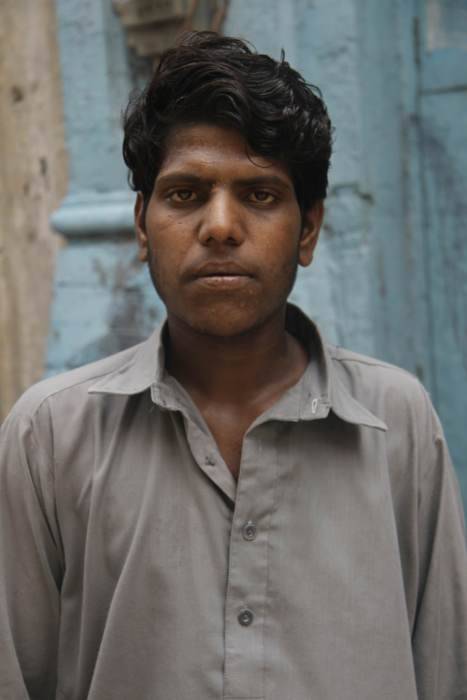
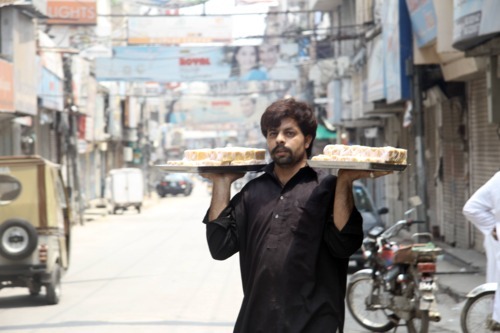
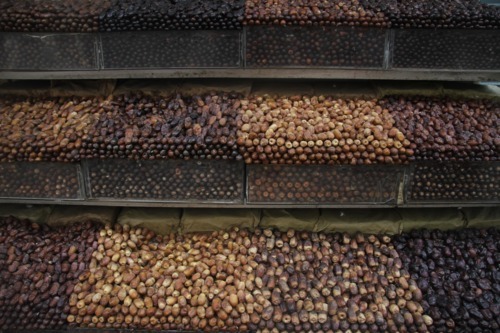
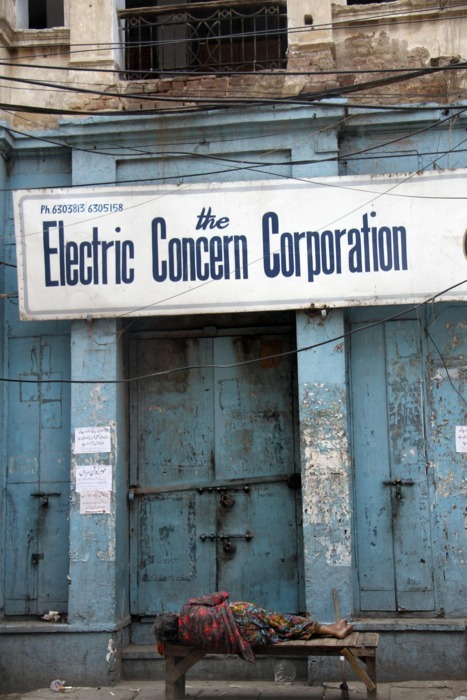
Another treat…ADP’s final music video, with a minor cameo from gori-with-a-camera :)

photos and text by Cheree Franco
KARACHI: On July 17, Taj Muhammad stood in the doorway of a burnt house. Melted bits of a desktop computer and a sewing machine were visible in the rubble. A few days earlier, the house had looked like hundreds of others in Orangi town’s Aligarh Colony, where tiny alleys lead to a jumble of concrete walled, partially open-air squatter dwellings. A street vendor by profession, Muhammad held a pan of spent bullets at arms length, displaying remnants from the previous week’s riots. Over the course of four days, 100 Karachites were killed and countless more injured in street violence. Muhammad’s three brothers are among the dead. One of them had six children.
“ANP shoots from there,” Muhammad’s neighbor said, indicating flat rooftops and high windows. “MQM fights on the ground.”Nearby walls are pock-mocked from bullets, and although the situation seemed stable on a bright Sunday morning, echoes of occasional gunfire ruffled the truce.
The Sindh Police Department blames its inability to halt Karachi’s ethnic clashes on a lack of resources. But according to Munir Ahmed Sheikh, assistant inspector general of forensics, police are getting better at determining perpetrators through scientific means.
“We’ve identified six weapons used in target killings from their spent bullets,” said Sheikh. “This is important because you come to know which groups are operating in the city, or which groups have actually committed crimes. Particular groups use particular weapons because they get financing from the same source.”
Sheikh is not at liberty to reveal which weapons have been identified, nor who those groups may be. He is unable to say if confiscated weapons have been matched to shells plucked off the streets in the past six weeks of heightened Karachi violence.
“All I can tell you is the procedure,” Sheikh said. “Bullets are recovered from the field by investigation officers, who send them to us. The bullets are then photographed and grouped according to weapon, so that we know how many weapons we’re dealing with. Then we use a comparison microscope to obtain unique data on the bullets.”
The residents of Aligarhsay thatno police have come to collect their shells. If police were in the area the night of July 8, they kept out of sight as bullets flew, fires raged in 30 homes, and the contents of eight Pashtun-owned fabric shops hardened into black fossil.
When shells do make it into police custody, experts can usually determine if the involved weapons were obtained legally or illegally. “We only issue licenses for bolt-rifles and handguns,” saidMuhammad Riazuddin Qureshi, additional secretary of the Sindh Home Department. “Licenses for automatic weapons are stringently controlled and come from the federal government.” So if a street bullet was fired from an automatic weapon, that weapon is almost certainly illegal.
An examiner can identify the weapon type from any bullet. But specific data from a single weapon must be matched to a specific bullet in order to confirm weapon identification. This identification is possible only if that weapon has entered police custody long enough to have its data collected. Each bullet has unique qualities—striker pin, breech and chamber marks—which are essentially a gun’s fingerprint. Like people, no two guns have the same fingerprints.
According to Sheikh, the bullet’s data is entered in a database and a report is filed. Then the bullet is returned to the police branch where it was originally recovered, and sometimes it’s introduced as court evidence. When weapons are recovered, they are fired in a chamber, and the resulting shells undergo the same procedure.
“All we do is examine material and send it back. Only the court and the investigating officer know the details of the report, because it could prejudice the case investigator,” said Sheikh.
The largest ballistics database has over 200,000 entries and contains stats on bullets used in street crime. High profile murders go into a three-month-old target-killings database. There is also a third database, configured to match bullets to weapons. Forensics receives 20 to 25 bullets a day, including those retrieved from the autopsies of gunshot fatalities. If a bullet matches a weapon, Forensics contacts the Home Department to find out if the weapon is registered.
“This is important for the report, because punishment of the same crime is different if committed by legal versus an illegal weapon,” said Sheikh.
Home Department records show that 13,802 guns have been legally registered in Karachi from January 1 to July 31 of this year, up from 9,794 guns registered in all of 2010. “But criminals don’t want to be tracked, so of course they don’t use registered weapons,” said Qureshi.
Karachi has a thriving underground arms trade. Presently the Home Department is taking steps to make forgeries more difficult and national background checks standard for every license applicant, but Qureshi admits that it will be years before these improvements are fully implemented. “And by that time, officers tend to get transferred or promoted elsewhere,” he added.
To register a weapon, a Sindh resident must have a NIC and either tax returns or utility bills—“because in Pakistan, 97% of people don’t pay taxes,” Qureshi noted—as well as an application vetted by his or her local supervisory police district. At this time, background checks happen only at the local level.
“We issue one license per weapon,” explained Qureshi. “It costs Rps4,500 to renew each license, each year. Legally you cannot even own a weapon after its license expires. You have to turn it in to your arms dealer or the Home Department. But since people tend to lock up their weapons and stay away or out of country, the Home Department takes a benign view and avoids prosecuting these license holders.” New weapons licenses have a built-in carry permit for loaded handguns, but older licenses require an additional permit.
Under Benazir Bhutto’s cabinet, possession of firearms was banned in1992. Musharraf overturned the ban in 1999. According to a 2010 paper published by the Collective for Social Science Research, Karachi, the city’s violent ethnic crime peaked between ‘93 and ‘96, directly following Bhutto’s gun ban, “with the rate of violent deaths to be 13 per 100,000 (deaths).” This Collective used stats from Human Rights Commission Pakistan’s annual reports.
But in Sheikh’s opinion, “street violence in Karachi is worse now than it’s even been. Maybe that’s because in the 1990s, there were more knives and now there are more guns, and or maybe the media hype contributes. Maybe we just didn’t know how bad it was then. In the 90s we had only PTV.”
There were between two and three hundred murders in Karachi in July, and thus far, August figures seem to be following suit. “Police can’t respond swiftly in an emergency. What do you want the people to do? If the state is failing to protect its people, then you can’t blame them for wanting a weapon for personal protection,” said Qureshi.




KARACHI:
The fan stirs the breeze in a small room at the Human Rights Commission Pakistan. It’s the final day of World Comic’s grassroots workshop on tolerance, and 28 participants, aged 12 to 40, are busy with their display.
It’s a grand affair involving tape, scissors, posters and twine. The participants — students, teachers, graphic designers and office clerks — have spent three days illustrating personal stories and learning the basics of comic communication. Their comic-speak has grown increasingly sophisticated. English words like visual script, ‘foreground’ and ‘long-shot’ pepper Urdu conversations.
The room resounds with laughter and chatter, blending into the din of Khadda market. Students snap pictures with their phones and discuss the nuances of specific comics. Despite the fact that a variety of religions, geographies, ethnicities and economic classes are represented here, there is palpable camaraderie.
“We encourage them to write their own stories in their own language,” said Nida Shams, a full-time volunteer for World Comics Network Shams. “We taught the process of writing, drawing and inking, so now they have what we call comic wall posters.”
Participants are encouraged to post on bus stops, electric poles and university campuses as a means of owning their public sphere. The posters explore issues such as religious and ethnic discrimination, religious hypocrisy, street violence, political and media criticism and Pakistan/India relations.
Clean, quiet morning?
Apologies issued and for the past few hours, most of the violence seems to have been directed at toys and tires. But I wonder, is this how it’s going to be, off and on, till Ramadan? Surely it’ll stop then?
Or will it just morph, sect vs sect instead of party vs party?

Shiny, decorated and colorful water tankers park near a hydrant in Karachi, Pakistan. Diaa Hadid/NPR
In Korangi, a slum neighborhood of Karachi, a sprawling port city of some 16 million people in Pakistan, there’s no running water.
So how do people get the water they need to drink, to cook, to wash up and to clean their homes?
Residents have to call men like Mohammad Zubair, a driver who belongs to a group of water handlers known as the “water tanker mafia.” For a price, drivers will deliver clean water, which is pricey, or polluted water, which is cheaper.

A young man fills the jerry cans tied to his motorbike with water in the Korangi slum. Diaa Hadid/NPR
In a grubby café in Karachi, Saghir Ahmed, a water tanker driver, explains how the mafias work. He says that he and other drivers routinely pay off officials from Karachi’s water board, the police and the “landlords” — men who own the land where the government pipes are punctured, and who build valves to allow the drivers to pump the water. Those valves, used to steal government water, are called “illegal hydrants.”
“The water board, police and landlord — these three — they benefit, they take the money,” he says.

A large water tanker in the Orangi slum in Karachi transfers part of its water to a smaller tanker. The area doesn’t have running water, and the streets are too narrow for large water tankers, so residents move the water to smaller tankers that can ply the hilly area. Diaa Hadid/NPR
Read the full story here
Indian national Geeta, right, who is deaf and mute, communicates with her colleague at charitable Edhi Foundation in Karachi, Pakistan, Thursday, Oct. 15, 2015. Geeta, who accidently crossed the border into Pakistan as a child nearly 12 years ago will return home soon, an Indian official said Thursday. (AP Photo/Fareed Khan)
Post link
A member of the Pakistani security forces stands guard during the incineration of seized illegal drugs, in Karachi, Pakistan, Oct. 15, 2015. The Pakistani law enforcement agency burnt a large quantity of narcotics and alcohol seized in different parts of the country 15 October. (EPA/SHAHZAIB AKBER)
Post link


